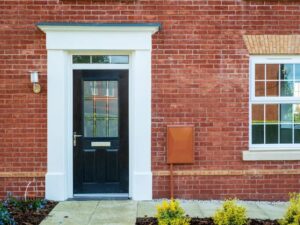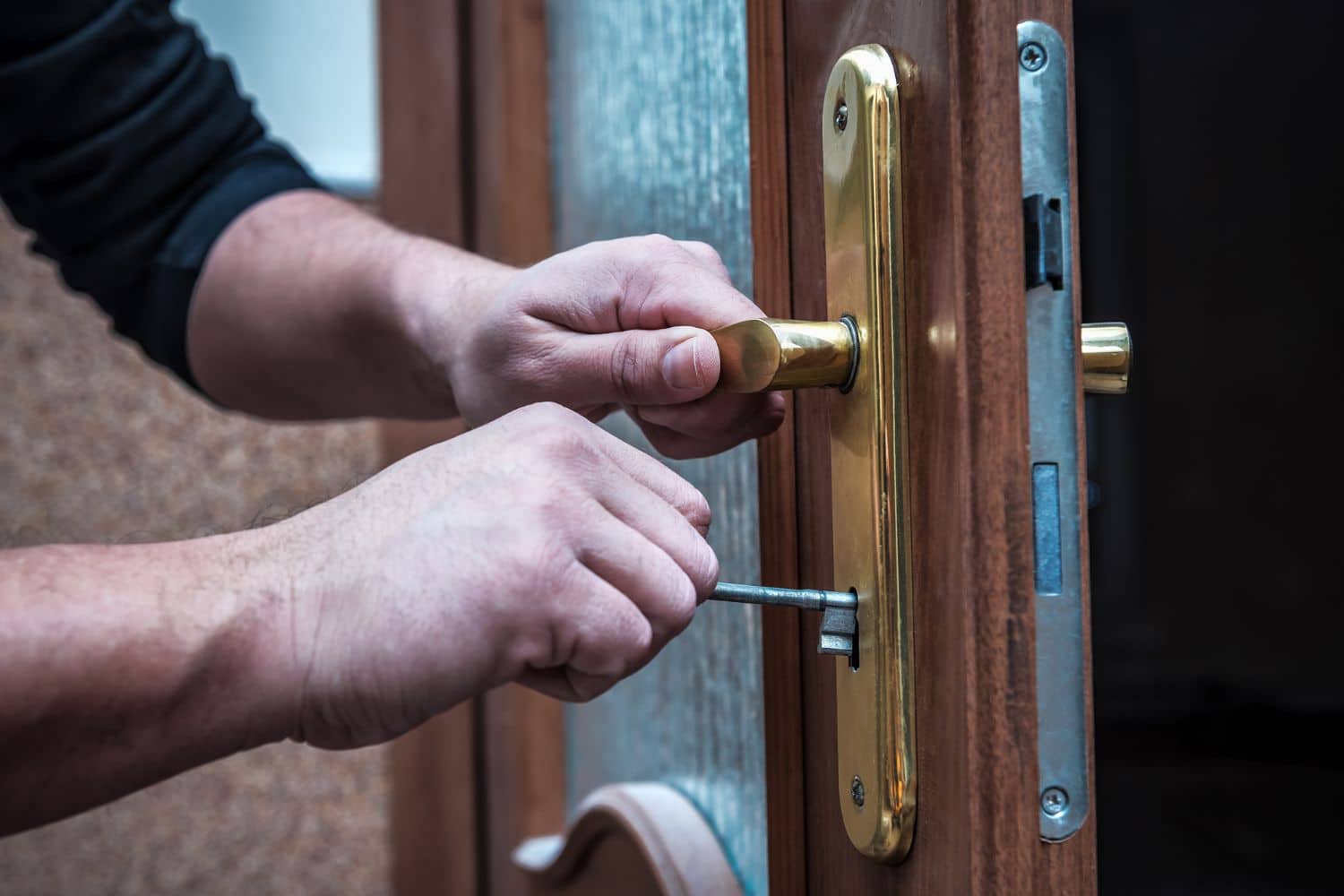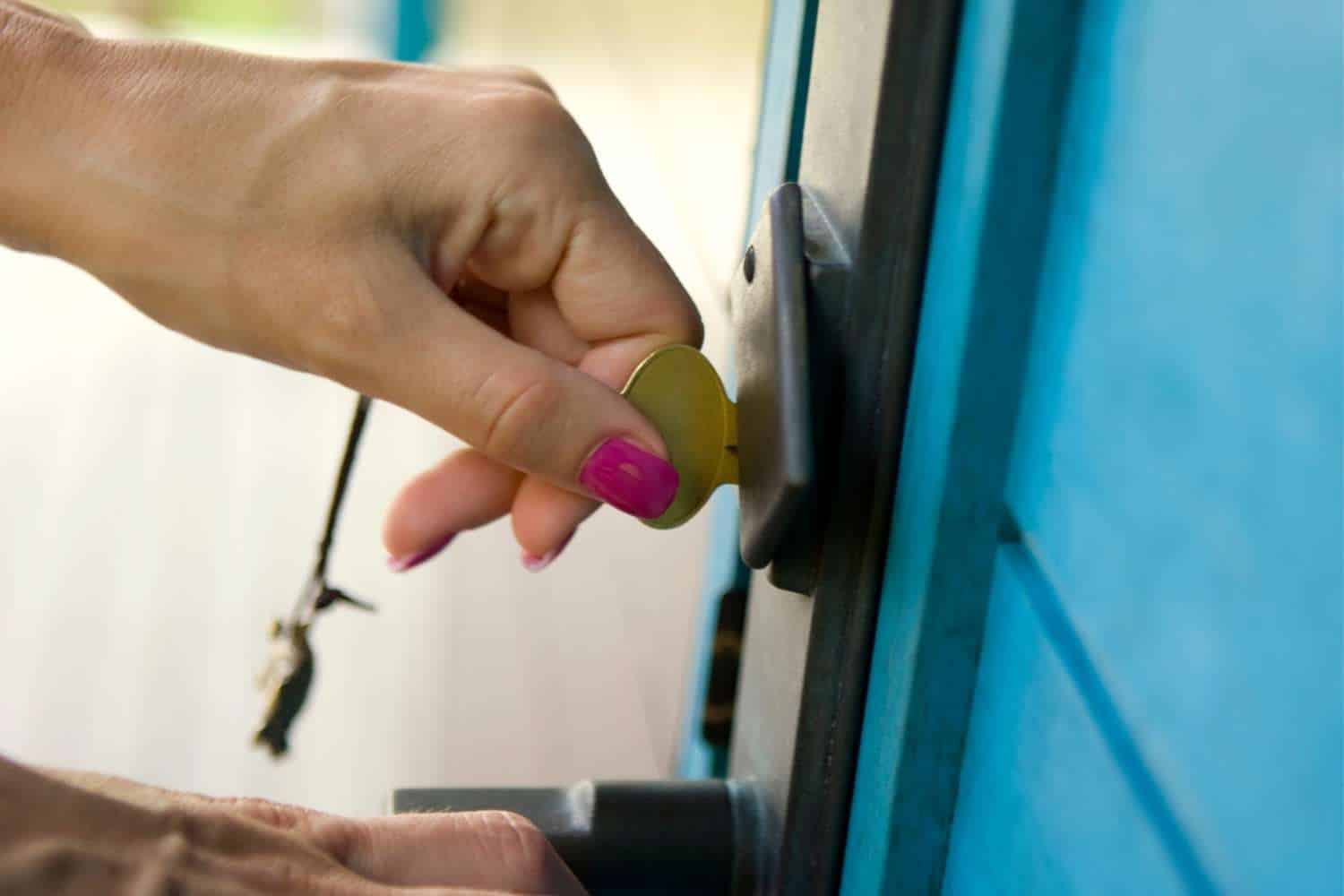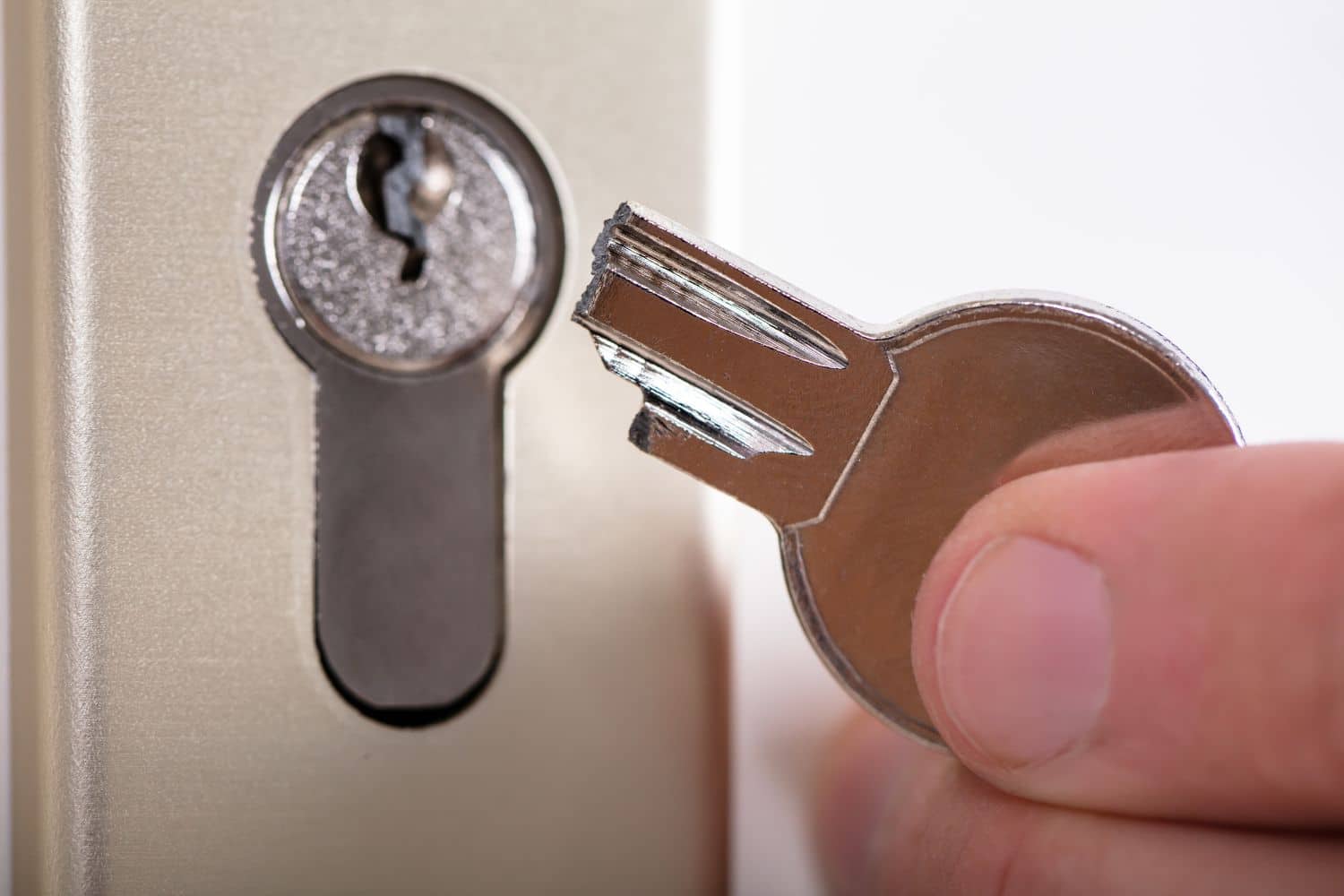
- 01708 453168
- info@atcl.co.uk
- Mon - Sat: 7:30 - 17:30
5 Star Rated On Google
★★★★★ 5/5

It’s fair to say that we take our door locks for granted because in most cases, they work without an issue. We rely on them to keep our homes and belongings safe but when a problem arises, it is too easy to panic understanding what the problem is can help you to take the right course of action. So, what could be causing your door lock to work? We are going to cover the most common reasons, helping you to take the next step.
This is one of the most common reasons why your lock might not be working but your door might be misaligned which means that the lock doesn’t line up. To successfully lock your door, the bolt has to fit into the bolt latch without any issues but if there is a misalignment then your lock simply will not do its job correctly.
Fortunately, this is an easy fix but spotting the problem is easier than you might think. All it requires is for the door to be aligned correctly which might require some expert help although it will help to check that the lock has not been damaged while you have been trying to lock the door.
There are many reasons why your lock won’t turn but when you experience it, you might wonder what to do next. The first thing to do is make sure that you are using the right key as this can often be the cause for this but if that is not the issue, what could it be?

With uPVC doors, there could be a problem with the barrel or gearbox and this will prevent you from working the lock. If you have a latch lock or a Yale lock then the problem could reside with the internal mechanism. Mortice locks are often found in wooden doors and if the lock won’t turn, this could be down to faulty levers or a broken bolt thrower, both of which will prevent the lock from turning.
In the majority of these cases, you will need to have your locks replaced. If you have the ability and competence, you might be able to change Yale or mortice locks yourself as they can be purchased from many DIY stores. However, if you have a uPVC door, then you will need the assistance of a locksmith. Despite the type of lock you have, if any of the internal components have failed then it is recommended that you seek out professional help as this will ensure that the lock is replaced and your property remains secure.
Just like many other lock problems, there are several reasons why your lock might continue to spin when you turn the key and this is down to the type of lock you have. In most cases, it indicates that the internal mechanism has detached and that means that when you turn the key, the bolt is not initiated but there might be a case where the cylinder is loose.
This problem is easy enough to spot but diagnosing the exact reason is difficult as it requires the lock to be removed. Furthermore, it is made even more difficult if the door cannot be opened. Using a professional locksmith, they will be able to determine what is causing the key to spin and then take the required course of action to sort the problem as a repair might be possible or it might require replacing. Once you spot this problem, you should avoid tampering with the lock or continue spinning it as this could make the problem worse and might mean that a repair is not possible.You might find that the lock requires force when you are both locking and unlocking your door. While this might not seem like the worst problem in the world, as the door will lock, it is a problem that you should not leave. If you do leave the problem, it will more than likely lead to further issues to the point where you will either be unable to lock the door or unlock it.
The good news is that this is often a problem that is relatively easy to solve and is often caused by dirt and grime entering the locks and building up over time. This clogs up the lock and stops it from moving freely. So, you can sort this problem by clearing the external section of the lock of dust and dirt to get access to the keyhole. You can then spray a lubricant into the lock to help remove dirt and leave it moving freely. However, it is important to make sure that you use a lubricant that can be used with locks as the wrong one could make the problem worse.
There are instances where your key might snap in your lock and when this happens, there is not much diagnosing that you will need to do. You might do this yourself or someone else might do it but essentially, it will stop you from putting your key into the lock. However, the best course of action to take here is to call out a professional as the lock will require replacement.

So, it is always worth remembering that your locks play an important role when it comes to protecting your property and keeping it secure. If you notice a problem, regardless of how big or small it might be, you should make sure that you get it checked. This will ensure that you use the services of a professional locksmith who will be able to carry out the necessary work to put it right. If you are unsure, do not attempt to solve the problem yourself as this could mean that you cause further damage and cost.
EXCELLENTTrustindex verifies that the original source of the review is Google. I have just used Around The Clock Locks (ATCL) Locksmiths and they are very professional, affordable and brilliant. They have resolved my French door lock issue within minutes and explained everything clearly. They came right on time and only start the job once we agreed the price which was very competitive. I appreciate their honesty also. I whole heartedly recommend ATCLTrustindex verifies that the original source of the review is Google. Amazing service, reasonably priced and helped me with a few other niggles I had in the property. Would highly recommendTrustindex verifies that the original source of the review is Google. Really responsive, friendly service, great work every time. Many thanksTrustindex verifies that the original source of the review is Google. I had a problem with the locks in my flat, after getting quotes from two other locksmiths, ACTL turned out to be the most responsive and reasonably priced by far. They replaced the locks (and door handle) quickly. Everything looks and works perfectly now. I also REALLY appreciated that all communication could be handled via email - no unnecessary phone calls, which was a hassle with other companies.Trustindex verifies that the original source of the review is Google. Amazing. Oliver arrived within 10 mins of my call and got my into my home quickly. He also kindly helped with a separate issue with my door. Highly recommended. Thanks so muchTrustindex verifies that the original source of the review is Google. Great service and totally honest, what more can I say.Trustindex verifies that the original source of the review is Google. They are polite, efficient and wonderful value for money. I would highly recommend anyone to use them.Trustindex verifies that the original source of the review is Google. Great service and really professional service , thank you very muchTrustindex verifies that the original source of the review is Google. This review is long overdue! I used ATCL to put locks on two of my internal doors a few months back and the locksmith did an amazing job. His work was perfection that it looked like the locks were there from the very start. ATCL were professional from the start with a fast response time, fairly priced quote and excellent service on the day. I would highly recommend them and use them again.Trustindex verifies that the original source of the review is Google. Came out within half an hour of me calling on Boxing day to get me back into my house after I locked myself out. Excellent service

All rights reserved - 2025